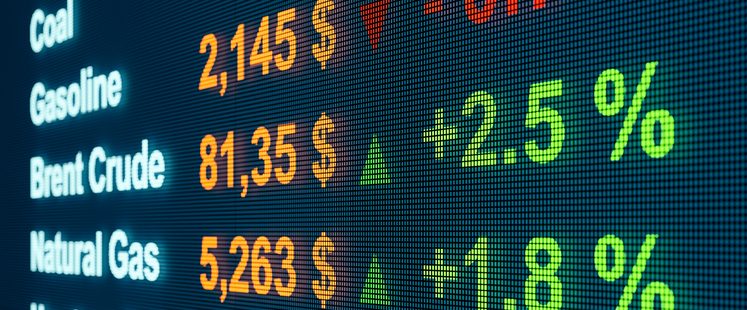Our Opinion: 2024
Inflated concerns

As western governments mull the persistent nature of global inflation, they will be looking at the turmoil in the Middle East with furrowed brows. The human tragedy is undeniable and, as time passes, the economic bad news will become harder to resist.
Central bankers have had their work cut out in recent years. Having negotiated the post pandemic supply chain issues and the war in the Ukraine, the global economy is looking into a new inflation shock in the form of the Israeli Hamas conflict. The conflict threatens to compound an already fragile global outlook.
Roll out the barrel
There was always the concern that the conflict would escalate and spread to the point of impacting oil producing nations. At the time of writing oil prices had risen reflecting the tensions in the Middle East and have been further supported by growing concerns about future supply. Brent futures were trading at $82.43 a barrel while U.S. West Texas Intermediate (WTI) crude was at $77.46 a barrel.
Oil and troubled waters
Pouring oil on troubled waters is traditionally something to calm a situation. But the expansion of the Middle East woes to the Red Sea is doing nothing to calm fears of rising prices. Yemen’s Iran-aligned Houthis have continued their attacks in the Red Sea, claiming solidarity with Palestinians and striking vessels with commercial ties to the U.S., Britain and Israel.
The counterbalance
The only news keeping a lid on oil and commodity prices is the likely course of US interest rates, which after a lower than expected fall in February will almost certainly stay where they are and limit any price gains. In the US and UK central bankers have been quick to go on record and talk down any speculation that there may be rate cuts this side of June.
Overspill
The key is to a degree how long the turmoil ensues. On current evidence it is not fleeting and while economies are so far coping there is already collateral damage to places like Egypt, given its reliance on the shipping in the Suez canal as a means of raising revenue. Transit fees last year raised $9bn. But companies who depend on exports brought through the Red Sea are also hurting. Tesla and Volvo suspended production as their plants as they awaited deliveries now having to navigate the Cape of Good Hope.
All of this points to higher interest rates for longer and investors should be taking sophisticated positions to navigate the months ahead.
The unknown unknowns
Donald Rumsfeld famously observed it was the unknown unknowns that we really have to look out for. There is less certainty in the world today than there has been for some time, and, as a species, uncertainty is something we are wired to avoid. But when uncertainty is the only certainty there is, whether that be the fate of NATO, elections in the UK, US and elsewhere, then understanding that and acting accordingly is what elevates ordinary advice to (black) gold.
I trust you will contact us if you would like to discuss any aspect of international wealth management with our team.
22nd February 2024
